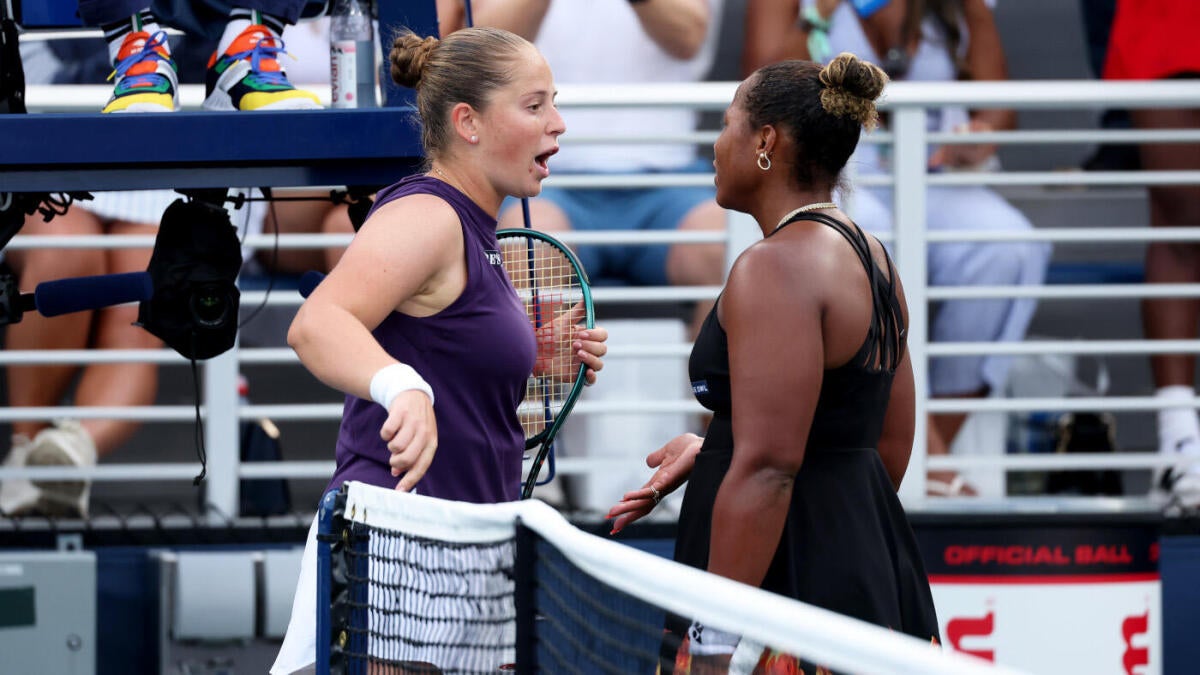Ostapenko's post-match blowup went viral on Wednesday
Why it matters
- Jelena Ostapenko's comments have sparked discussions about sportsmanship in tennis.
- The incident highlights the pressures athletes face in high-stakes environments.
- Ostapenko's apology reflects a growing trend among athletes to acknowledge mistakes publicly.
In a surprising turn of events at the 2025 US Open, Latvian tennis player Jelena Ostapenko found herself at the center of controversy following her post-match remarks directed at American player Taylor Townsend. The incident occurred after Ostapenko's hard-fought victory over Townsend in the first round, which drew attention not only for the competitive nature of the match but also for Ostapenko's reaction in the aftermath.
After clinching the win, Ostapenko made headlines with her comments that many perceived as lacking in sportsmanship. The remarks, which were seen as dismissive towards Townsend, quickly went viral, igniting a wave of criticism from fans and analysts alike. Social media platforms erupted with reactions, with many calling for more respect and decorum in the sport.
Recognizing the backlash, Ostapenko took to social media to issue a heartfelt apology to Townsend. In her statement, she expressed regret over her choice of words and acknowledged that her comments did not reflect the respect she holds for her fellow athletes. "I want to extend my sincerest apologies to Taylor Townsend for my post-match comments. It was never my intention to disrespect her or her accomplishments," Ostapenko wrote. "Tennis is a tough sport, and we all work incredibly hard to get to where we are. I have great admiration for Taylor and her journey."
This incident resonates deeply within the tennis community, as it underscores the importance of sportsmanship and mutual respect among competitors, especially in high-pressure situations like the US Open. Ostapenko's initial remarks, perceived as lacking grace, brought forth discussions on the expectations placed on athletes in terms of their conduct on and off the court. It is crucial for players to maintain a level of professionalism, as their actions can influence fans and aspiring players alike.
As the tennis world continues to evolve, the standards for athlete behavior are increasingly scrutinized. Players are often viewed as role models, and their words carry weight beyond the confines of the court. Ostapenko's apology serves as a reminder that even prominent athletes are not immune to making mistakes, but they do have the power to rectify them publicly.
Taylor Townsend, who has been making waves in the tennis circuit with her impressive performances and resilience, responded to Ostapenko's apology with grace. She acknowledged the pressure that comes with competing at such high levels and emphasized the importance of supporting one another as athletes. Townsend has had her own share of challenges, and her journey in the sport resonates with many who face similar struggles.
The exchange between Ostapenko and Townsend reflects a broader conversation about the culture within professional sports. As fans and analysts examine the dynamics of competition, it's clear that the treatment of opponents and the spirit in which matches are played are crucial components of the game. Ostapenko's experience serves as a moment of learning, not just for herself, but for the tennis community as a whole.
In an era where social media can amplify both praise and criticism instantly, athletes are more accountable than ever for their words and actions. Ostapenko's willingness to apologize signifies a positive shift towards greater awareness and sensitivity in sports. This incident will likely serve as an important lesson for many young players who aspire to reach the heights of professional tennis.
As the tournament progresses, fans will be watching closely not just for the scores, but for how players conduct themselves in the public eye. Ostapenko's journey at the US Open may have taken a detour due to her comments, but her response has the potential to pave the way for more respectful interactions among competitors. Ultimately, the essence of sports lies not only in the victories and losses but also in the relationships forged through competition and mutual respect.











